GNOME 40 is out now to showcase the latest Linux desktop environment work from the GNOME Project, which includes a number of feature overhauls and improvements.
Safe to say this is one of their biggest releases, at least since the original redesign of GNOME Shell into what we know it as now. In total, the release incorporates 24571 changes, made by approximately 822 contributors. They also dedicated this release to the team behind the GNOME Asia Summit 2020.
The biggest user-facing change in GNOME 40 will be the new Activities Overview design where you see all your open applications, workspaces and search through installed applications. Workspaces are now arranged horizontally, while the overview and app grid are accessed vertically and there's plenty of keyboard shortcuts, mouse actions and support for touchpad gestures too. Here's some shots of it (click to enlarge):

 Pictured - GNOME 40 on Fedora 34
Pictured - GNOME 40 on Fedora 34
A lot more is new in GNOME 40 including a redesigned Weather application, an improved Settings application, the GNOME web browser has a new tab design and you can configure search suggestions from Google if you want, GNOME Software (their application store) also got revamped with a new look and will tell you where packages come from (be it normal distro packages or Flatpak) and much more. Plenty of style changes throughout too which better matches their overall design.
See the release notes and the special 40 splash page here.
If you want to see it in action and try it right now, Fedora already have a Beta out of Fedora 34 which includes GNOME 40.

Direct Link
With every release Gnome becomes more of a MacOS rip off. It's not even in inspiration territory any more, it's all lifted straight from there.
I think doing anything else would violate the two rules of satisfaction:
They are only two things the user hates: change and the way things are.
Sorry, not trying to pick on you, just figured I'd be nice add a little humor. Congrats to the gnome team, sounds like a lot of hard work.
i would like more options in the mouse settings though in regards to acceleration. the default acceleration profile causes my mouse to move way to fast. i would prefer a more "flat" profile. or an option to disable acceleration.
Maybe you know this already, but there's a utility called gnome-tweaks which contains additional settings to those in gnome-control-center, including mouse acceleration. Contrary to gnome-control-center, the gnome-tweaks app contains settings which the casual user is unlikely to touch, and it is therefore usually not installed by default.
I've tried to use Gnome and I just don't see why anyone would use it. The user experience feels awkward and outdated. The lack of desktop icons by default and the Activities Overview keep me from recommending this to new users.Funny enough, when you get used to the lack of desktop icons, you don't even miss them. Even when I use KDE or (gasp!) Windows, I turn off desktop icons now.
The Gnome workflow is fairly similar to that of tiling window managers like i3. You either like it or you hate it.
Last edited by sudoer on 25 Mar 2021 at 1:41 am UTC
Hardly. I just find myself marveling at how far we've come. It's amazing what open source graphics drivers (and the accompanying stack!) can deliver in terms of modern gaming (Freesync, high refresh rate, and high resolution). I can't wait to try my first ray traced game.
Super + Firefox + EnterFirefox launches in seconds. Why click anything?
Last edited by drlamb on 25 Mar 2021 at 12:50 pm UTC
I'm not going to use Gnome Shell, but I look forward to seeing gtk4 ports of Gnome apps I do use. And Cinnamon eventually too.
I'm using an extension called Dash to Panel and it more or less turns Gnome Shell into Cinnamon, albeit without desktop applets. I also had to add User Themes, of course, since it's pretty ugly out of the box. But, if you ever decide to jump ship from Mint, give it a try. I'm really impressed with Pop.
I love it. Also being trying it in fedora 34 and the only thing that I've been missing is Pop_OS! Shell tiling window feature. I wonder how they'll implement it for Gnome 40.
You can install the extension. Though I haven't checked if it works on 40
I had it installed, along with few more, and on 40 they all don't work :(
Phone UI got a horizontal workspaces update? Wow let's celebrate like Mac hipsters :P Do you still have to go your mouse pointer to the top left to activate the dock that is put at the bottom now (even bigger distance) in order to be able to click your damn program icon so that you can eventually get it opened like you instantly wanted but you couldn't? :D
You mean how in other DEs you still have to move your pointer to the bottom left to activate the start/application menu? Also, that's only if your PC somehow lacks a keyboard; otherwise it's as easy as Super + A to launch the App Grid (i.e. Dash on steroids) or Super + <first few letters of an app name> + Enter to insta-launch an app directly, just like @drlamb said.
Disclaimer: although I do agree that the Dash should be visible by default, or even better configurable as visible or not by default, and although I use Dash-to-Dock, and although I dislike the Gnome devs' mentality in general when it comes to (ignoring) user feedback (queue removed Desktop icons, non-existent file-picker thumbnails, non-configurable vertical workspaces, and the list goes on and on and on and effing on), it still greatly annoys me when people exaggerate about things that are not nearly as bad as they're made out to be.
P.S. - This isn't addressed to you @sudoer; but I just love how the most vocal anti-Gnome Linux users are most usually self-proclaimed neckbeards who supposedly use Emacs and vim and like to do all their stuff by keyboard. It seems very strange to me that all those keyboard warriors prefer to spend their days unproductively huffing and puffing over GUI stuff and mouse distances instead of making use of Gnome's arguably top-notch keyboard navigation support.
Last edited by Nocifer on 26 Mar 2021 at 12:02 pm UTC
That said, just pressing the Super key is decent enough generally. Hit it once, then type what you need. It acts like Krunner in that regard, or the old gnome-do (loved that app!) in that it's basically invisible, but is a very quick keyboard-based way to navigate around. Combined with the PopShell extension for tiling, Gnome could almost compete with i3 for a tiling environment.
Gnome has, with enough extensions, grown on me.
I had it installed, along with few more, and on 40 they all don't work :(
There have been important changes to the API; so I expect a lot of breakage:
https://blogs.gnome.org/shell-dev/
& porting extensions needs quite a bit of work:
https://gjs.guide/extensions/upgrading/gnome-shell-40.html
Gnome has, with enough extensions, grown on me.Don't look now, but you have a Gnome growing on you!
It does seem to be the case that if I learned how to install the right things to completely frustrate the Gnome devs' ideas about what the Gnome UI should be like, I could have a desktop environment that was quite nice--almost like, say, Mate or Cinnamon.
Or I could just use Mate or Cinnamon, and not have to learn about a bunch of extensions and have them break on me now and then.
For me personally, the "do the typing" thing leaves me kind of cold. And I say that as someone who usually navigates the web by typing the first couple letters of the url. But I have launchers for my most commonly used apps--one click. If I'm starting most other programs I probably can't remember just what the dang thing is called and I actually do want to look in the menus until I see what I want there and say "Oh yeah, that was it!"
Interesting, Nocifer - I wasn't aware of Super+A at all. Gnome probably need something like Ubuntu's old shortcut-popup that taught you all this stuff.
That said, just pressing the Super key is decent enough generally. Hit it once, then type what you need. It acts like Krunner in that regard, or the old gnome-do (loved that app!) in that it's basically invisible, but is a very quick keyboard-based way to navigate around. Combined with the PopShell extension for tiling, Gnome could almost compete with i3 for a tiling environment.
Gnome has, with enough extensions, grown on me.
Indeed pressing Super and typing on the keyboard is much faster, and that's how I use Gnome as well, like KRunner (which I love). But Dash on steroids (Super+A) can be very useful as well for the more mouse-oriented people among us ;)
For me personally, the "do the typing" thing leaves me kind of cold. And I say that as someone who usually navigates the web by typing the first couple letters of the url. But I have launchers for my most commonly used apps--one click. If I'm starting most other programs I probably can't remember just what the dang thing is called and I actually do want to look in the menus until I see what I want there and say "Oh yeah, that was it!"
That's exactly why it's so important for a project to support more than one workflows, especially when we're talking about an Open Source project where freedom (be it user freedom, code freedom, monetary freedom, personal freedom i.e. privacy, or whatever else kind of freedom) is supposed to be king. And so it's exactly why Gnome is disliked or even hated (and IMHO deserves to be so) by many users who don't use it, and even only tolerated by many users who do use it: because Gnome as a project (and despite its many technical merits) does not respect its users and the ethics/values of the Open Source community it claims to be a part of.
In fact, Gnome is the perfect example of how a world would look like where Linux is controlled not by a thriving community of free coders but by cold and detached corporate entities who only care about their bottom lines, and where the only difference between "open source" and "closed source" is that in the first case the code is openly available for people to read (but not touch unless they're part of the corporate decision-making clique).
Now I think about it, Gnome is the Cyberpunk version of Linux :P
But unfortunately, as already mentioned, Gnome is in some cases miles ahead of the competition, and for my particular use case it's simply the only choice.
gnome tweaks is broken atm on gnome 40. there is a new version, but its a beta version and not in arch yet. not even in the aur or the gnome unstable repo.i would like more options in the mouse settings though in regards to acceleration. the default acceleration profile causes my mouse to move way to fast. i would prefer a more "flat" profile. or an option to disable acceleration.
Maybe you know this already, but there's a utility called gnome-tweaks which contains additional settings to those in gnome-control-center, including mouse acceleration. Contrary to gnome-control-center, the gnome-tweaks app contains settings which the casual user is unlikely to touch, and it is therefore usually not installed by default.
nevertheless, i just switched over to gnome 40 from xfce.
There will probably be a new version any day. Some rolling distributions don't put out every GNOME-package at once, but instead piece by piece over a few days which obviously can break things temporarily. Arch is among those distributions.
Interesting, Nocifer - I wasn't aware of Super+A at all. Gnome probably need something like Ubuntu's old shortcut-popup that taught you all this stuff.
That said, just pressing the Super key is decent enough generally. Hit it once, then type what you need. It acts like Krunner in that regard, or the old gnome-do (loved that app!) in that it's basically invisible, but is a very quick keyboard-based way to navigate around. Combined with the PopShell extension for tiling, Gnome could almost compete with i3 for a tiling environment.
Gnome has, with enough extensions, grown on me.
Indeed pressing Super and typing on the keyboard is much faster, and that's how I use Gnome as well, like KRunner (which I love). But Dash on steroids (Super+A) can be very useful as well for the more mouse-oriented people among us ;)
For me personally, the "do the typing" thing leaves me kind of cold. And I say that as someone who usually navigates the web by typing the first couple letters of the url. But I have launchers for my most commonly used apps--one click. If I'm starting most other programs I probably can't remember just what the dang thing is called and I actually do want to look in the menus until I see what I want there and say "Oh yeah, that was it!"
That's exactly why it's so important for a project to support more than one workflows, especially when we're talking about an Open Source project where freedom (be it user freedom, code freedom, monetary freedom, personal freedom i.e. privacy, or whatever else kind of freedom) is supposed to be king. And so it's exactly why Gnome is disliked or even hated (and IMHO deserves to be so) by many users who don't use it, and even only tolerated by many users who do use it: because Gnome as a project (and despite its many technical merits) does not respect its users and the ethics/values of the Open Source community it claims to be a part of.
In fact, Gnome is the perfect example of how a world would look like where Linux is controlled not by a thriving community of free coders but by cold and detached corporate entities who only care about their bottom lines, and where the only difference between "open source" and "closed source" is that in the first case the code is openly available for people to read (but not touch unless they're part of the corporate decision-making clique).
Now I think about it, Gnome is the Cyberpunk version of Linux :P
But unfortunately, as already mentioned, Gnome is in some cases miles ahead of the competition, and for my particular use case it's simply the only choice.
In my opinion it’s not a bad thing if the general direction is controlled by just a few people. I prefer a desktop that feels complete and concise as a whole (albeit limited for a certain workflow and only limited escape from that workflow) than a desktop that has some very cool details but also some rough edges in trying to support every way of working. Since creating a desktop takes a lot of years and manpower, I think a more directive approach is even needed to follow and stick to a vision over a longer period of time. Not saying that nothing can be improved with Gnome, but in general I like their direction and vision, including decisions to remove features that doesn’t fit their direction.
I adapted my workflow when switching to Gnome 3 back in the days, it took some time, but now I can’t go back to anything that is similar to Windows XP. But that’s just my way of working, nothing wrong of course with other workflows and other desktop environments.
Last edited by jens on 26 Mar 2021 at 8:43 pm UTC
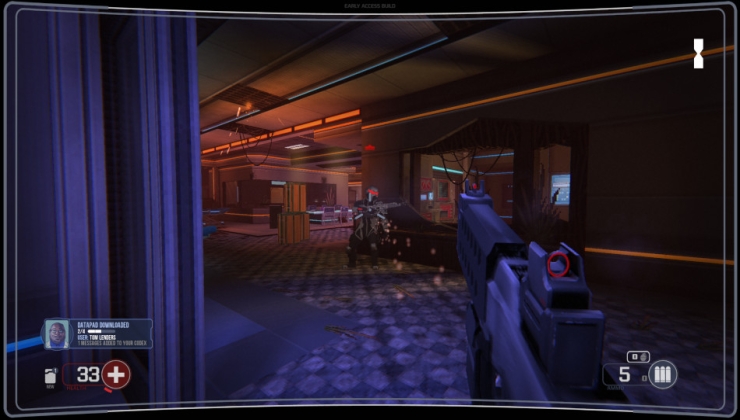
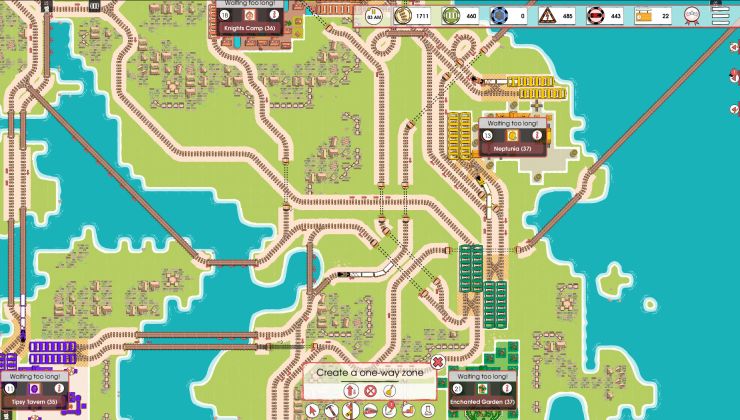
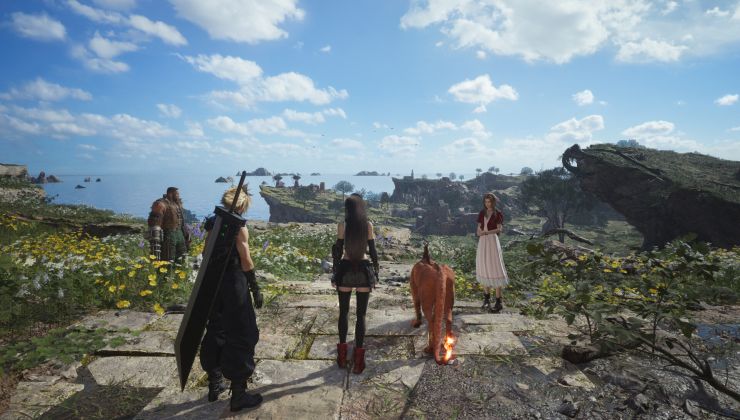
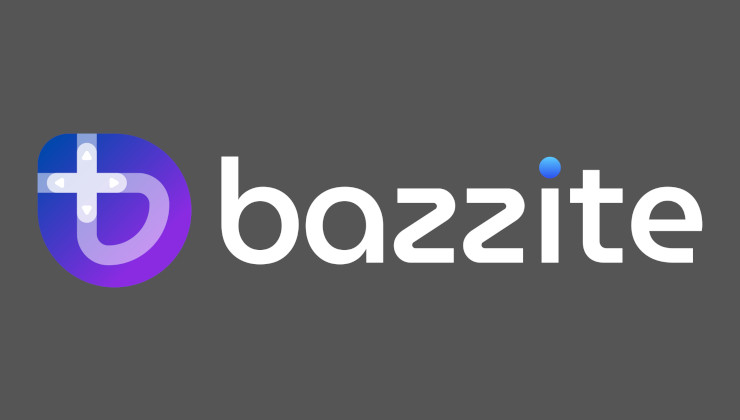







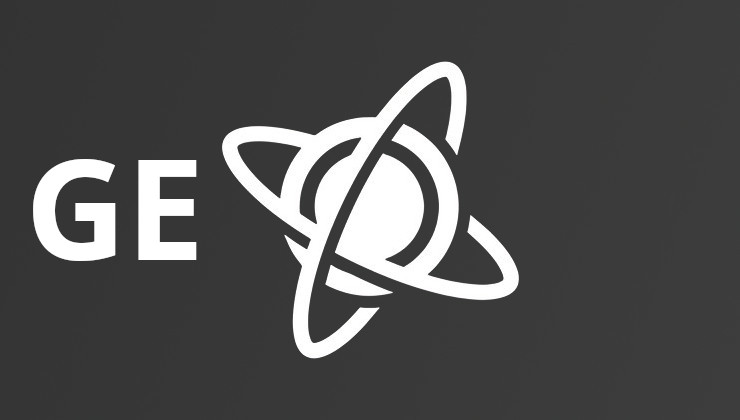 How to install GE-Proton on Steam Deck, SteamOS, Linux
How to install GE-Proton on Steam Deck, SteamOS, Linux An idiots guide to setting up Minecraft on Steam Deck / SteamOS with controller support
An idiots guide to setting up Minecraft on Steam Deck / SteamOS with controller support
See more from me